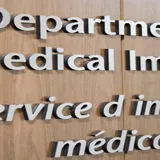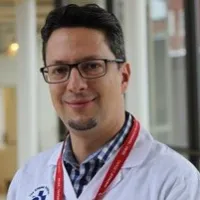Subarachnoid hemorrhage
On this page:
The Ottawa Hospital is conducting cutting-edge research to improve our understanding of subarachnoid hemorrhage and develop better approaches for treatment and prevention. This page includes selected news stories about our subarachnoid hemorrhage research, links to researchers working in this area and related resources. Learn more below.
Research & News
Labs and Groups
These research teams may include multiple scientists, investigators, staff and trainees all working towards a common goal, or they can represent a single scientist and their team.

Aviv Advanced Imaging Lab
Publications
The following research publications from The Ottawa Hospital are pulled from PubMed, with publication date of 2020 or later. Note that PubMed is hosted by the U.S. National Library of Medicine and is only available in English.
Neuromonitoring with near-infrared spectroscopy (NIRS) in aneurysmal subarachnoid hemorrhage: A systematic review and meta-analysis.
2025-11-14 Go to publicationRapid Ventricular Pacing for Clipping of Intracranial Aneurysms: A Single-centre Retrospective Case Series.
2025-07-01 Go to publicationUtility of predictive scales for emergency department patients with a new diagnosis of aneurysmal subarachnoid hemorrhage.
2025-05-01 Go to publicationElevated Blood Pressure and Culprit Aneurysm Rebleeding During the Unsecured Period of Aneurysmal Subarachnoid Hemorrhage: A Systematic Review.
2025-04-01 Go to publicationLiberal or Restrictive Transfusion Strategy in Aneurysmal Subarachnoid Hemorrhage.
2025-03-13 Go to publication










